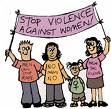It would be easy, when faced with the development crisis which now threatens Africa, to demand that the rest of the world ride to our rescue. After all, it is not the people of Africa who are responsible for the financial crisis devastating our economies or the climate change which has unleashed floods, droughts and storms on our land.
This is an important week for Africa. The latest report from the Africa Progress Panel, being launched today, will detail the impact of these twin disasters on the continent. Tomorrow’s report from ONE, the campaigning organisation, will also assess how the G8 is living up to its aid promises.
It is already clear however that, wherever the blame lies for the crisis, the main responsibility for reducing its impact on Africa lies with the continent’s own leaders. This does not mean the rest of the world can walk away.
But without bold, focussed and sustained leadership from Africa’s Governments, outside assistance won’t safeguard our people or protect the progress we have made. African business must also be an active part of the pact to make the continent work better for all its people.
You don’t have to look further than Mozambique, my own country, to see what’s at stake. Over the last 15 years, it has been one of Africa’s greatest success stories. Indeed, its journey from conflict to democracy, stability and strong growth has given hope to our whole continent.
But the financial crisis, collapse in trade and cuts in overseas investment have dramatically reduced economic growth. Money sent back by our citizens abroad has also been cut back as jobs overseas are lost.
For the moment, the Government can continue to fund its much improved health and educational services. The impact at national level will take time to work through. But the effect on families is instant.
When you lose your job, there is no redundancy payment, welfare safety net or savings to soften the blow. From being able to put bread on the table one day, the next you can no longer feed your family. The result is hunger, disease and despair. In Mozambique, as everywhere else in the world, it is the very young who are most at risk.
The country was, of course, already struggling with the increasing impact of climate change. Every year since 2000, Mozambique has been hit by flooding, drought or cyclones far worse than we would expect.
Hundreds of thousands of people have been forced to flee their homes. Crops are destroyed. Mozambique has responded by putting in place effective disaster management policies and structures so loss of life is reduced. But scarce resources are spent replacing schools and clinics instead of building anew.
South Africa, where I live, is also suffering from the impact of the global economic meltdown. In major employers like mining, the automobile and textile industry, thousands of people are losing their jobs. But for the boost that preparations for the World Cup next year is giving to the economy, the position could be much worse.
Across the continent, we are seeing the same story of economic decline and extreme weather threatening solid progress. It is a tragedy that when millions of Africans believed their countries and continent were finally on the right track, this crisis has fallen on our shoulders.
But it is how Africa, in partnership with the international community, reacts to this challenge which will decide whether we continue to go forward or slip back. At times of crisis, bold and visionary leadership is more important than ever. That’s what is now needed in Africa. Our leaders, who have already shown what can be achieved, need to redouble their efforts and work together to consolidate the right foundations for Africa’s prosperity.
First, we need urgent progress on improving Africa’s agricultural productivity. Our land is rich but the way we farm is well behind the times. It is why our continent is the only one which can not feed itself. If we learn from the success of others and adapt techniques and crops to our own particular needs and conditions, we have a huge opportunity not just to feed the 900 million Africans but to meet food shortages in other continents.
In Mozambique, for example, the Government already has the right policies for a major expansion in cereal production, especially rice. The need is to work with local farmers, big and small, and with international partners to reap the benefits of an African green revolution.
Climate change, of course, is a real threat to our hopes of improving Africa’s poor record on agriculture. But it also provides big opportunities if Africa takes full advantage, for example, of the clean development mechanism. This new investment can help adapt to the changes in the climate already underway and support vital development initiatives. It can help fund, for example, efforts to harness Africa immense potential to produce green energy and modernise the continent’s infrastructure to boost trade.
But using this money wisely requires far more rigorous efforts to root out corruption. It has been estimated that this is a $150 billion burden on the shoulders of Africa’s people. Our leaders need to show much greater resolve in tackling this cancer. Good clean governance is not an optional extra but essential to fulfil Africa’s potential.
It is not the right laws which are missing. It is the determination to investigate and bring to justice those guilty of diverting the continent’s resources into their own pockets. The most important single step is to safeguard and strengthen the independence of the judiciary. Too often prosecutions fail because the courts can be pressurised to protect the corrupt but powerful.
Alongside a stronger judiciary, we need to bolster the role of civil society. We have seen the growth in organisations and networks outside government which represent the interests of citizens. But these voices, important watchdogs on corruption and champions of change, are still too often too weak and fragmented. Governments must have the confidence to build their capacity so they can engage with local national, regional and international partners.
At the same time Africa must itself find a stronger united voice in the international community. We can’t allow the interests of our continent to be marginalised. We need to negotiate a better deal so that Africa benefits fully from the natural resources with which our continent is hugely endowed. This is the best way to persuade the richer countries to offset the calamitous drop in income Africa is now suffering. Short-term grants, loans and easier credit are important contributors to Africa’s growth.
Africa has reason to be angry at the way it is paying the price for the mistakes and misjudgement of others. But there is no point in simply lamenting our fate. We need bold leadership from Africa. The international community has also to live up to its responsibilities. If all our leaders rise to the challenge, the result will be a stronger Africa and a better world.
( Business Day, 19/11/09 )
Machel is a member of the Africa Progress Panel (www.africaprogresspanel.org).
























2 comments:
It is a beautiful piece of writing or a nice 'lecture' which makes a lot of sense. It takes everybody's efforts for things to materialise. Being an international well known public figure and a wealthy person, how much is she willing to contribute to this challenge? When we have the means, it is our moral duty to uplift our people or help the under privileged.
Maria Helena
Invest with 200$ and get a returns of 5,000$ within seven business working days.
Why wasting your precious time online looking for a loan? When there is an opportunity for you to invest with 200$ and get a returns of 5,000$ within seven business working days. Contact us now for more information if interested on how you can earn big with just little amount. This is all about investing into Crude Oil and Gas Business.
Email:investmetoil.gasfinancial363@gmail.com
Post a Comment